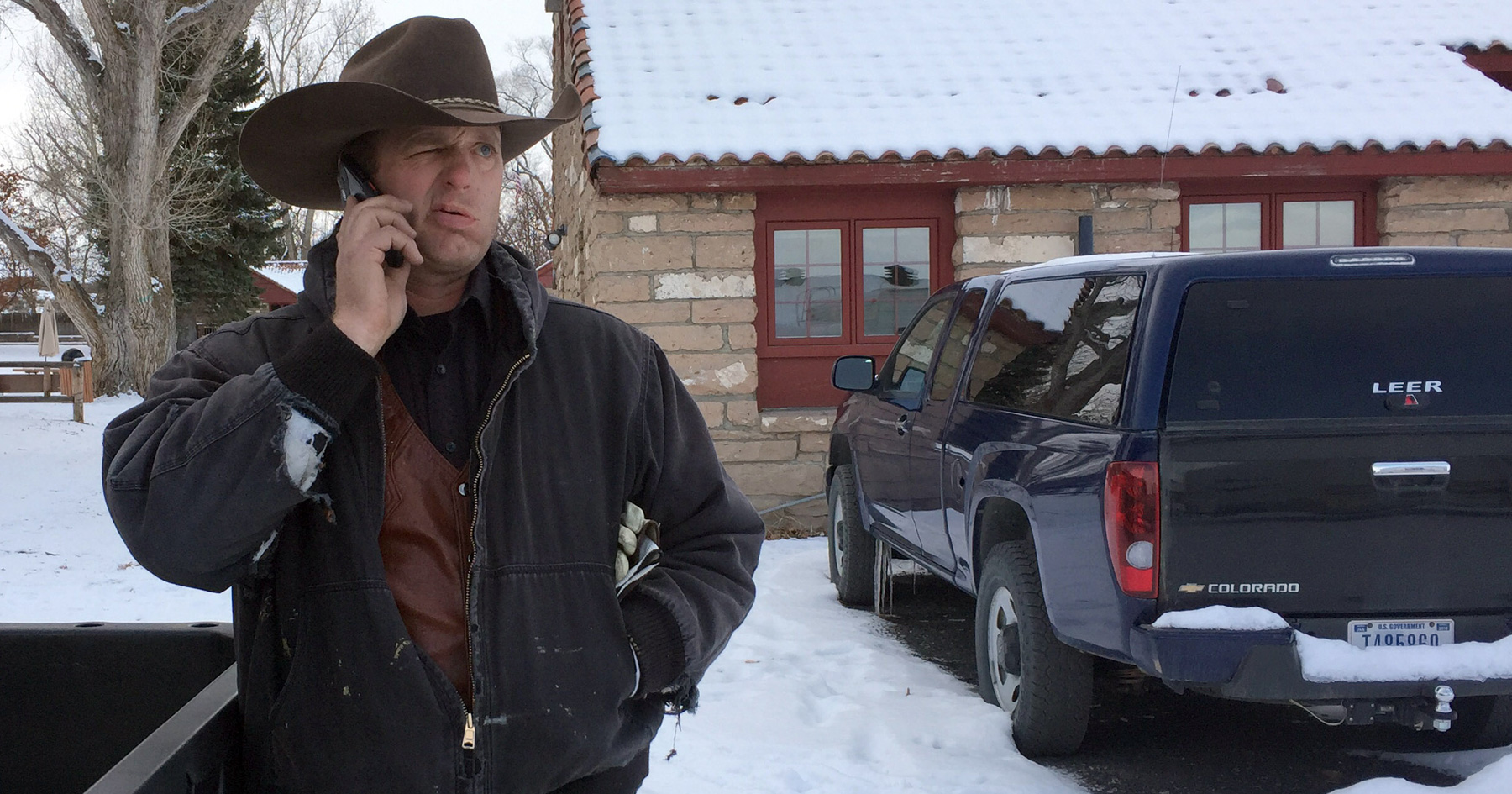Why Oregon Officials Aren't Rushing to Stop the Armed Militiamen
By:
Militiamen in Oregon continued to occupy the Malheur National Wildlife Refuge for a fifth day on Wednesday, and the group said it was worried about a federal raid. But it's likely that they will continue to hold the federal building without seeing an aggressive response from law enforcement — local, state, or federal.
Since the armed takeover began over the weekend, one central talking point has been the response, or lack of response, from law enforcement. Many have criticized the low-key approach of police and federal agents for illustrating a disturbing double standard in policing civil disobedience: What if the armed militiamen — who have not ruled out using violence to hold their position in a government-owned building — were Muslim, or Black? Would the response then look different?
Related: People Are Furious Over Media Hypocrisy Toward Oregon's Militiamen
 AP/Rebecca Boone - apimages.com
AP/Rebecca Boone - apimages.com
Those are legitimate questions, especially in light of the highly militarized responses to protests and demonstrations that have cropped up in recent years, and the overaggressive use of deadly force against Black men. Yet at least when it comes to the federal response (the FBI is the lead response team), news outlets and experts are confident that the occupation will pan out without becoming explosive, which isn't necessarily indicative of a double standard.
Related: Why Are Oregon's Protesters Called 'Militiamen,' Not Terrorists?
"Certainly in a case where there doesn't appear to be any immediate concern about hostages or immediate safety to the public, I would hope a reasonable approach would happen here," a former FBI agent and national security expert told the Oregonian.
Two previous cases involving similar standoffs with potentially violent parties have been called up to explain why the scene at the southeastern Oregon wildlife refuge likely won't turn violent. Essentially, botched responses turned soured public opinion of federal law enforcement tactics, and led the FBI to revise its strategy in cases like the Oregon standoff.
In the summer of 1992, a man named Randy Weaver took his family to a cabin in rural Idaho, dodging a court appearance over weapons charges. An 11-day standoff with law enforcement agents ensued, during which an FBI sharp shooter accidentally killed Weaver's wife, and a U.S. marshal shot the man's 14-year-old son in a shootout.
 AP/Ron Heflin - apimages.com
AP/Ron Heflin - apimages.com
Another case a year later in Waco, Texas, saw federal agents in a 51-day standoff with a religious sect known as the Branch Davidians. The FBI attempted to abruptly end the standoff by using heavy amounts of tear gas to drive the Davidians out of their compound. But rather than surrender, the group instead set fires in the compound, killing more than 80 people.
Why officials might not be rushing to respond to the Oregon standoff
The outcomes of those two cases stirred up outrage, and ultimately drove the FBI to consider less aggressive approaches to situations that might otherwise be resolved peacefully. This was meant not only to prevent unnecessary loss of life, but also to prevent against backlash from other extremists — Timothy McVeigh, who killed 168 people with a bomb in Oklahoma City in 1995 allegedly cited the two cases as motivation.
Even though the group in Oregon is armed, their occupation has been peaceful, does not involve hostages, and poses no imminent public safety threat. They even broke into the wildlife building with a set of keys. Brian Levin, director of California State University's Center for the Study of Hate and Extremism, told the Oregonian that those characteristics should inform law enforcement response.
"Silence and patience are friends that never betray, particularly for law enforcement."
"We have a group of armed squatters who are extremists holed up in a desolate unoccupied compound," he told the paper, adding that the "situation should be monitored in the least confrontational way.
